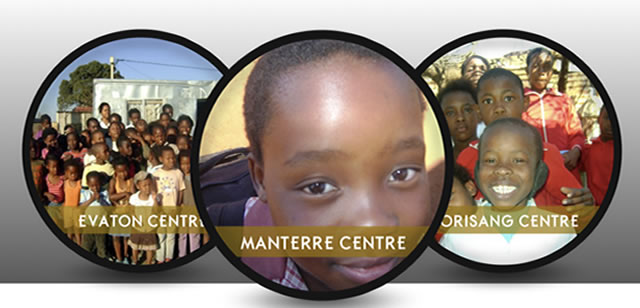
| Siyanda CSI |
|---|
 Our Context Our Context |
 Nutrition Centres Nutrition Centres |
 Basic Education Support Initiatives Basic Education Support Initiatives |
 Further Education Burseries Further Education Burseries |
At Siyanda Group, corporate social investment is not but one of the "boxes" that has to be "ticked" in a journey that selfishly uses the plight of the vulnerable members of our society as smoke screens in our endeavours for maximum profit. This is so, and ought to be so with all corporate citizens, because the founding members emanate from the very dire poverty that faces our communities and will always remain members of these communities. Uplifting these communities is an exercise in self-help which should demand no accolades and awards, as you could hardly be heard to argue that you must be compensated for looking after your own children, brothers and sisters, mothers and fathers, uncle and aunts.
Poverty is a universal phenomenon, which does not in any way imply that we must countenance its dehumanising effects. Universal as poverty maybe, it usually takes a Black face, in particular an African face, wherever you go. We see it with drought victims of interchangeably and sometimes simultaneously, Somalia and Ethiopia. We must be extremely irritated with this presentation and plight of the Black race, but we must in general not be tolerant to poverty in the mist of opulence, no matter what colour of face it wears.
With even all the challenges faced by the world, we believe charity begins at home. As a result of the HIV pandemic, millions of house-holds are child headed, and in most instances by children as young as 14 years and younger, looking after siblings ranging from babies who are a few months old and those of their age, without any source of income. These children have to juggle attending school bare footed and on empty stomachs, with scavenging dumping sites for our rotten leftovers, and in days when there is nothing rotten to retrieve, which is often, they resort to eating rotten carcasses of dogs. They have become favourite pray for sex pests, right under our noses. In the KOSH (Klerksdorp, Orkney, Stilfontein and Hartebeesfontein) region alone, there were over 1000 households headed by children under the age of 14 in 2008, looking after over 6000 other children under their care. Remember now that this is not the poorest region of our country and does not even constitute 1% of the population of the whole of the Republic of South Africa. Now imagine how many children are in similar circumstances nation-wide, in particular in the poorest regions of our country.
In one of the community seminars organised in that year, a 14 year old girl related how, after her mother died when she was 12 years old, she had to look after her 9 month old sister and 5 year old brother. She related how she would put the baby in a big basin with pillows, open a tin of condensed milk donated to them and give it to the child to drink, put the child under the bed and leave her under the protection of the family dog while she ran to school. Immediately after school, she would run back home, and on the way go pass the dumping site to scavenge for food, arrive home to find the family dog still loyally looking after the child, who by this stage would be screaming in pain, as the ants would be all over her condensed milk-filled face. She would do the washing for all three of them, cook whatever she scavenged, if she was lucky; and the routine would go on and on. She ended by declaring that she would rather trust as stone than trust a human being, since if you left a stone in one place, it is reliable enough for you to find it where you left it.
There are millions of our children living under these circumstances. These children are generally not able to access the government child grants, as most of them don't have birth certificates nor the identity documents of their deceased parents. Even those who do have these documents, by the time their grants are approved, they have either left school and joined thousands of homeless children without an address, or died from poverty, or from exposure to the elements, or from abuse, but in most instances from a combination of these. It is in this context, in which dogs are bringing-up our children in the mist of dire poverty, that the Siyanda Group corporate social investment plan is premised.
Siyanda has established three nutrition centres in Hartebeesfontein (Tigane), Northam (Mantserre) and Vereeniging (Evaton), in which it is currently proving three hot meals to over 200 orphans and/or neglected children. The centres, staffed by volunteers, who, despite the fact that they are unemployed themselves, graciously give their time without expectation of compensation, generally serve as parenting institutions, in which the children are assisted with their homework, provided with books and stationery, clothing (including uniform and shoes), toiletries and sanitary pads, counselling services, obtaining birth certificates, applying for child grants, and in general provided with all the very basic materials needed for descent human existence. Before the end of this year, Siyanda would have establishing a further two more centres in Modimolle and Komati regions, the aim being to have at least one of these institutions where we conduct business and where our management members reside and/or originate.
We are conscious of the fact that this is just a drop in the ocean and much more is required to turn the situation around. But then again the ocean is made up of a multitude of drops. We believe that it is the responsibility of us all, as both natural and corporate citizens of the world, not to allow these things to happen in our watch and presence. We cannot continue to look up to governments to solve our problems, which they clearly have neither the will nor the competence to solve. Corporate citizen have huge resources, which if applied correctly could eliminate the scourge of poverty and restore the dignity of humanity.
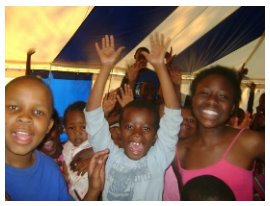
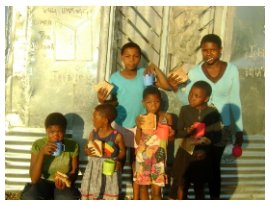
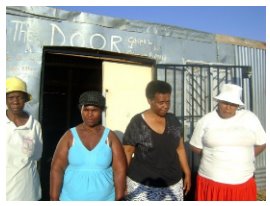


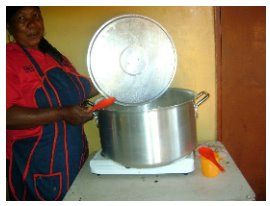

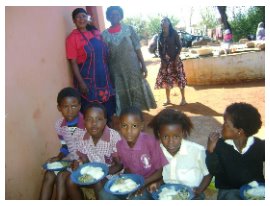

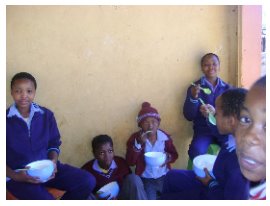
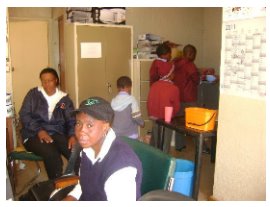
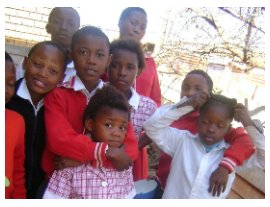
Siyanda is conscious that the ultimate solution to all these problems is to liberate our communities through a potent weapon of education. Siyanda has adopted, and will continue to adopt, various schools that it provides well equipped computer centres to, sponsor and encourage extra classes over weekends and holidays and various study materials to assist with re-establishing the culture of learning and academic excellence.
Are Fenyeng primary school was gifted with eleven (11) new computers and synchronized all the computers in the center and provided Internet.
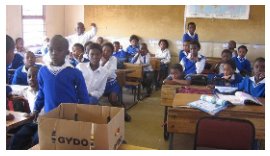
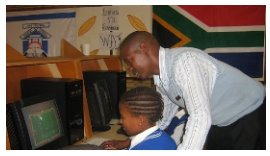
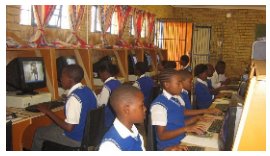
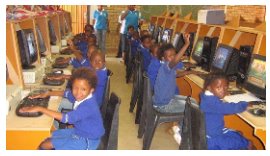

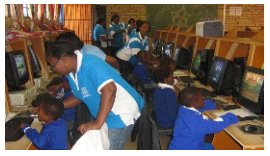
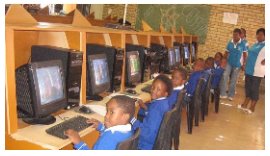
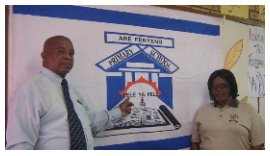
Siyanda is also providing two fully funded tertiary education bursaries for qualifying students who want to study engineering related degrees or diplomas. With the realization that many extremely talented students from these challenging backgrounds, who achieve anything from 70% to 98% aggregate in these impossible circumstances described above, end up being re-locked permanently in poverty, as they do not even have money to apply to tertiary institutions (the challenge is not only application fees, but even envelopes and stamps to post their applications), nor apply for bursaries, Siyanda will be paying application fees for numerous grade 12 students, paying registration fees for at least 25 best performing students in grade 12, who have undoubted ability to obtain either bursaries or loans once registered with these tertiary institutions. This means that until these students obtain funding, Siyanda funds their education and assist them to obtain alternative funding. In those rare instances where funding is not obtained in that particular financial year, Siyanda pays for the fees, boarding and subsistence of the students.
Any nation that denies tertiary education to its brightest stars is doomed to failure, and will experience high levels of crime, committed by sophisticated criminals who could have been solving our developmental problems.